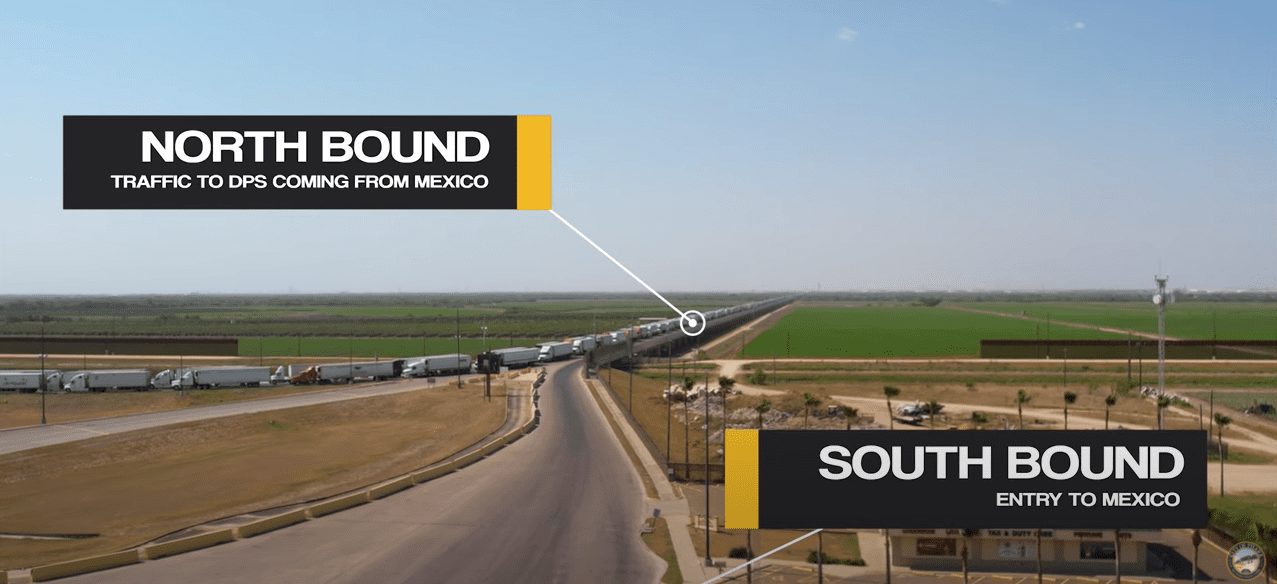Texas Governor Greg Abbott’s efforts to bolster border security are backfiring financially. A ramp-up of state trooper inspections of semi-trucks crossing from Mexico into Texas has taken an economic toll, costing Texas an estimated $4.2 billion, according to Ray Perryman economists,
Governor Abbott’s Department of Public Safety (DPS) inspection mandate was issued on April 6 to thwart illegal drug smuggling and human trafficking. It was made to extend the governor’s Operation Lone Star, a security mission introduced last year. Thousands of state troopers and National Guard members were commissioned to secure the border amid an increase in illegal crossings. Texas and Mexico share over a dozen commercial traffic border crossings.
Governor Abbott abandoned the extra inspections by mid-April after reaching agreements with the governors of Mexican states Nuevo León, Coahuila, Chihuahua, and Tamaulipas, but not before the financial losses began mounting, making him the target of criticism from his political opponents and the White House.
Democratic gubernatorial candidate Beto O’Rourke did not hesitate to pile on, saying the massive trade delays were “killing businesses and the Texas economy.”
Last year, the Texas economy saw a capital injection of $650 billion from Mexican trade.
The U.S. economy has already been reeling from a supply chain crisis after the pandemic-fueled lockdowns were implemented. According to Waco, Texas-based economic analysis and research firm Perryman Group, Governor Abbott’s order exacerbated those delays, with Texas losing $470 million each day at the height of the order, The Perryman Group estimates.
The toll on the broader U.S. economy could be even worse, with the Perryman Group estimating the damage to the country’s GDP due to the enhanced inspections at close to $9 billion.
The Pharr-Reynosa International Bridge is not the state’s only international border crossing, but it has taken a direct hit from the delays. The bridge suffered financial losses of over $200 million per day, totaling $1 billion during the heightened inspection period imposed on trucks looking to cross the Mexico border into Texas. Meanwhile, a long line of tractor-trailers headed northbound from Mexico to the Texas Department of Public Safety was hard to miss in the city of Pharr in Hidalgo County.

Image by YouTube
While the order was in place, trucks waited up to 12 hours on the bridge to cross the border. Overall wait times, the average of about three hours, lasted for days in some cases.
The fallout affected trade, resulting in a price tag of $240 million as a direct result of fruits and vegetables headed into the United States becoming rotten. In addition to the produce, the semi-trucks were delivering auto parts and other items.
The searches were mechanical and did not expand to cargo. They yielded no drugs. Nevertheless, authorities cited over 800 truckers for other motor vehicle violations, including under-inflated tires to non-working turn signals. Trade bottlenecks were expected to ease after the inspections were relaxed.
The Mexican state of Coahuila said it is working with the State of Texas to strengthen border security.

Image by Twitter
However, Governor Abbott has warned that he is not opposed to reinstating the inspections.
“If those expectations are not fulfilled, and we see an increase or even a continuation of the illegal immigration traffic we’re currently seeing, Texas can reinstate the enhanced security measures for [commercial] vehicles coming across the border,” Abbott said at the news conference with Cabeza de Vaca.


